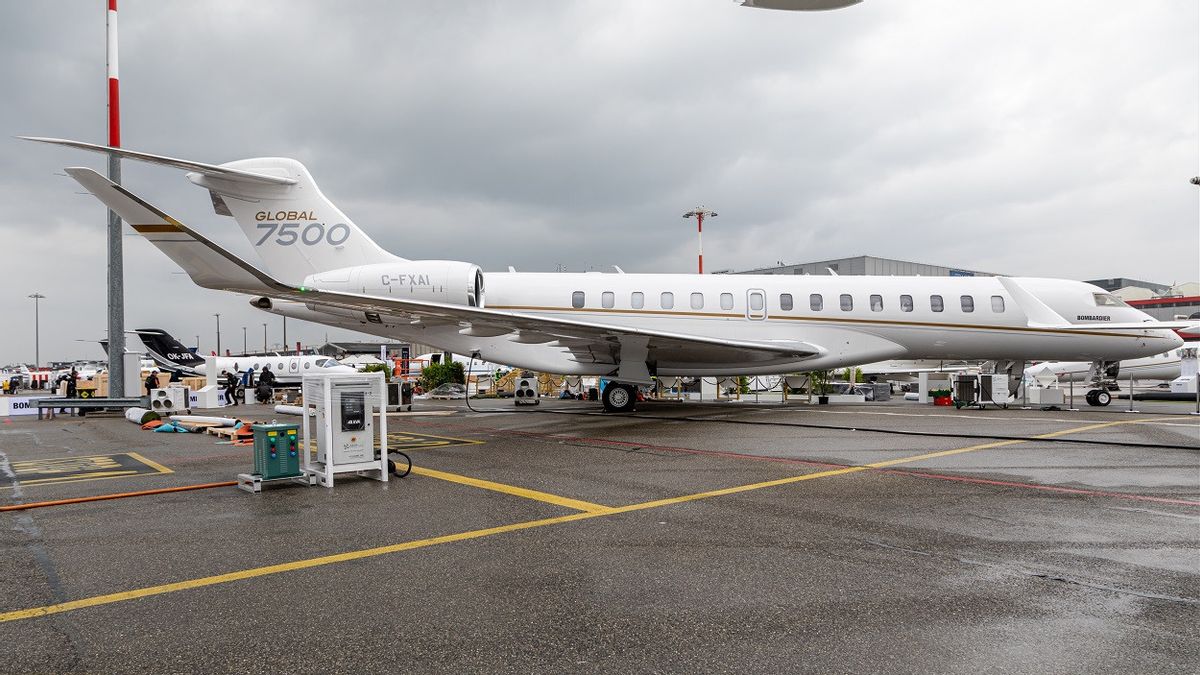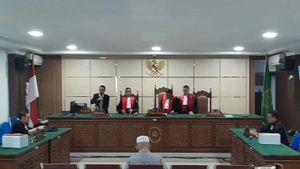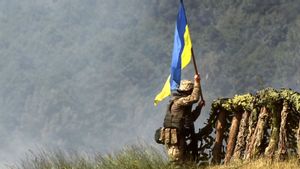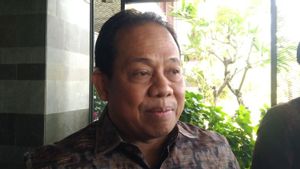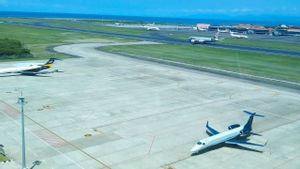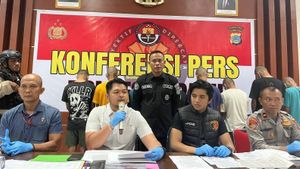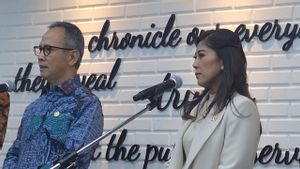JAKARTA - The demand for private jets from Russian conglomerates has soared this year, with a growth rate of around 32 percent compared to before the pandemic.
This is based on data from WingX Advance GmbH, a research and consulting firm specializing in the business aviation industry. This condition occurs when most Russian commercial airlines are absent from holiday destinations in Europe, except for some flights to the UK and Greece.
Private jet traffic, which is not covered by Russian and European Union aviation laws, allows Russians with an EU residence permit or a second passport to fly to other closed countries.
"Private jets solve the problem of limited flights to Europe and other destinations," said Yevgeny Bikov, of private travel company Your Charter, citing The Moscow Times.
"As summer approaches, we have seen a 50 per cent increase in demand to fly privately compared to pre-pandemic 2019, mostly to Western Europe. Demand often actually exceeds the possibility of flying overseas," he added.

Bikov explained, favorite locations for summer vacations offered to conglomerate clients include Nice on the French Riviera, France. As well as the Spanish seaside resorts of Mallorca, Ibiza and Malaga.
“We expect further improvements in the coming months, as our clients will be interested in visiting their second home and resort in Europe,” said commercial director Yelena Stepnovaya at Sirius Aero, a company that specializes in managing private jet travel.
In addition to allowing international travel, private jets have made Russian tycoons feel safe during the pandemic. Conditions made the private jet industry recover much faster than commercial airline businesses in Russia.
"There's never more than 10-15 people around. No lines, no hassle. This is another reason for the growing popularity of the private plane industry," Stepnovaya said.
According to estimates by business outlet RBK, in 2020 Russian commercial airlines lost a total of 125 billion rubles or about 1.7 billion United States dollars. Major airlines, including S7, had to cut staff by a third to stay afloat.

The private sector renaissance has gone hand in hand with a 20 percent increase in the net worth of wealthy Russians during the pandemic, consultancy PwC and Swiss bank UBS said in a 2020 report, driven by a boom in global stock markets.
Another wayRussians looking to visit Western Europe today have a number of 'entrances', says Vadim Zhevnov, manager at the concierge service of the Russian boutique The Fixer. The most common method is to hold an EU residence permit or a European passport. Malta and Russia are getting a lot of attention, with the policy of giving 'gold passports' to foreigners who want to invest in these countries.
According to the FT, Russian investors and their families accounted for nearly half of the 3,153 gold passports granted in Cyprus between 2013 and February 2018.
Another route that has sprung up and gained popularity during the pandemic is 'medical clearance', where European hotels, for a hefty fee, provide Russian tourists with medical certificates from local clinics allowing them entry into the country.
The service is very popular in Italy, Bikov said, while Stepnovaya says that 70 percent of his clients have chartered a private plane to visit their second home or take advantage of medical services.

While it's legal for hotels to issue medical permits, some users of the service told The Moscow Times that they don't actually need medical treatment.
With the advent of vaccine passports in Europe, Russian operators and concierge services are also starting to discuss ways to help their wealthy clients get past vaccination rules, as many people in Russia are reluctant to take injections.
"In Russia, it won't be difficult to get a certificate for a client even without a vaccine," said an employee at another private boutique service who asked not to be named.
Currently, the Sputnik V vaccine is only accepted in Greece and Slovakia, but the European Union has said it will receive it if it gets approval from European regulators this summer.
The English, Chinese, Japanese, Arabic, and French versions are automatically generated by the AI. So there may still be inaccuracies in translating, please always see Indonesian as our main language. (system supported by DigitalSiber.id)
